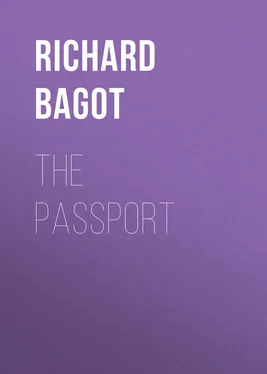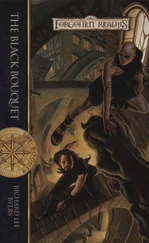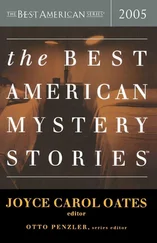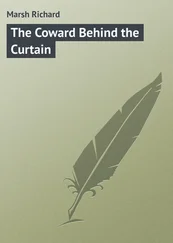Richard Bagot - The Passport
Здесь есть возможность читать онлайн «Richard Bagot - The Passport» — ознакомительный отрывок электронной книги совершенно бесплатно, а после прочтения отрывка купить полную версию. В некоторых случаях можно слушать аудио, скачать через торрент в формате fb2 и присутствует краткое содержание. Жанр: foreign_antique, foreign_prose, на английском языке. Описание произведения, (предисловие) а так же отзывы посетителей доступны на портале библиотеки ЛибКат.
- Название:The Passport
- Автор:
- Жанр:
- Год:неизвестен
- ISBN:нет данных
- Рейтинг книги:4 / 5. Голосов: 1
-
Избранное:Добавить в избранное
- Отзывы:
-
Ваша оценка:
- 80
- 1
- 2
- 3
- 4
- 5
The Passport: краткое содержание, описание и аннотация
Предлагаем к чтению аннотацию, описание, краткое содержание или предисловие (зависит от того, что написал сам автор книги «The Passport»). Если вы не нашли необходимую информацию о книге — напишите в комментариях, мы постараемся отыскать её.
The Passport — читать онлайн ознакомительный отрывок
Ниже представлен текст книги, разбитый по страницам. Система сохранения места последней прочитанной страницы, позволяет с удобством читать онлайн бесплатно книгу «The Passport», без необходимости каждый раз заново искать на чём Вы остановились. Поставьте закладку, и сможете в любой момент перейти на страницу, на которой закончили чтение.
Интервал:
Закладка:
There had been, consequently, passages of arms concerning responsibility for the repairs of water-pipes and similar objects, in which it was clearly injurious to the glory of God and the interests of the Church that the princess should be the one to give way. She had been, indeed, on the point of declining the offer of Professor Rossano to take the vacant apartment. He was a well-known scientist, with a reputation which had travelled far beyond the frontiers of Italy, and, in recognition of his work in the domain of physical science, had been created a senator of the Italian kingdom. But a scientific reputation was not a thing which appealed to the princess, regarding as she did all scientific men as misguided and arrogant individuals in league with the freemasons and the devil to destroy faith upon the earth. The Abbé Roux, however, had counselled tolerance, accompanied by an addition of five hundred francs a year to the rent. The apartment had been long unlet, and was considerably out of repair; but the professor had taken a fancy to it, as being in a quiet and secluded position where he could pursue his studies undisturbed by the noise of the tram-cars, which even then were beginning to render the chief thoroughfares of Rome odious to walk and drive in, and still more odious to live in.
As he was a man of some means, he had not demurred at the extra rent which the princess's agent had demanded at the last moment before the signing of the lease. Apart from the fact that he was a scientist and a senator of that kingdom of which the princess affected to ignore the existence, there had seemed to be nothing undesirable about Professor Rossano as a tenant. He was a widower, with a son of four-and-twenty and a daughter a year or two older who lived with him; and, after her tenant's furniture had been carried in and the upholsterers had done their work, the princess had been hardly conscious that the apartment immediately above her own was occupied. On rare occasions she had encountered the professor on the staircase, and had bowed in answer to his salutation; but there was no acquaintance between them, nor did either show symptoms of wishing to interchange anything but the most formal of courtesies. Sometimes, too, when going out for, or returning from, their daily drive, the princess and her step-daughter would meet Professor Rossano's daughter, who was usually accompanied by her maid, a middle-aged person of staid demeanor who seemed to act as a companion to the Signorina Giacinta, as, according to the porter, Senator Rossano's daughter was called. The girls used to look at each other curiously, but weeks went by before a word passed between them.
"They are not of our world," the princess had said, decisively, to Bianca shortly after the Rossanos' arrival, "and there is no necessity for us to know them" – and the girl had nodded her head silently, though with a slight sigh. It was not amusing to be princess of Montefiano in one's own right and do nothing but drive out in a closed carriage every afternoon, and perhaps walk for half an hour outside one of the city gates or in the Villa Pamphili with one's stepmother by one's side and a footman ten paces behind. Bianca Acorari thought she would like to have known Giacinta Rossano, who looked amiable and simpatica , and was certainly pretty. But though there was only the thickness of a floor between them, the two establishments were as completely apart as if the Tiber separated them, and Bianca knew by experience that it would be useless to attempt to combat her step-mother's prejudices. Indeed, she herself regarded the professor and his daughter with a curiosity not unmixed with awe, and would scarcely have been surprised if a judgment had overtaken them even on their way up and down the staircase; for had not Monsieur l'Abbé declared that neither father nor daughter ever went to mass?
This assertion was not strictly true – at any rate, so far as the Signorina Giacinta was concerned. The professor, no doubt, seldom went inside a church, except, perhaps, on special occasions, such as Easter or Christmas. He possessed a scientific conscience as well as a spiritual conscience, and he found an insuperable difficulty in reconciling the one with the other on a certain point of dogma which need not be named. He was not antichristian, however, though he might be anticlerical, and he encouraged Giacinta to go to the churches rather than the reverse, as many fathers of families in his position do, both in Italy and elsewhere.
Professor Rossano and his daughter had inhabited the Palazzo Acorari nearly three months before Bianca made the discovery that the girl at whom she had cast stolen glances of curiosity, as being the first heretic of her own nationality she had ever beheld, was, if appearances spoke the truth, no heretic at all. She had actually seen Giacinta kneeling in the most orthodox manner at mass in the neighboring church of Santa Maria dei Campitelli. Bianca had informed the princess of her discovery that very day at breakfast in the presence of the Abbé Roux, who was an invariable guest on Sundays and feast-days. She nourished a secret hope that her step-mother might become more favorably disposed towards the family on the second floor if it could satisfactorily be proved not to be entirely heretical. The princess, however, did not receive the information in the spirit Bianca had expected.
"People of that sort," she had responded, coldly, "often go to mass in order to keep up appearances, or sometimes to meet – oh, well" – she broke off, abruptly – "to stare about them as you seem to have been doing this morning, Bianca, instead of saying your prayers. Is it not so, Monsieur l'Abbé?" she added to the priest, with whom she generally conversed in French, though both spoke Italian perfectly.
The Abbé Roux sighed. "Ah, yes, madame," he replied, "unluckily it is undoubtedly so. The Professor Rossano, if one is to judge by certain arrogant and anticatholic works of which he is the author, is not likely to have brought up his children to be believers. And if one does not believe, what is the use of going to mass? – except – except – " And here he checked himself as the princess had done, feeling himself to be on the verge of an indiscretion.
"You hear, Bianca, what Monsieur l'Abbé says," observed the princess. "You must understand once for all, that what Professor Rossano and his daughter may or may not do is no concern of ours – "
"So long as they pay their rent," added the Abbé, pouring himself out another glass of red wine.
"So long as they pay their rent," the princess repeated. "They are not of our society – " she continued.
"And do not dance," interrupted Bianca.
The princess looked at her a little suspiciously. She was never quite sure whether Bianca, notwithstanding her quiet and apparently somewhat apathetic disposition, was altogether so submissive as she seemed.
"Dance!" she exclaimed. "Why should they dance? I don't know what you mean, Bianca."
"It is against the contract to dance on the second floor. The guests might fall through on to our heads," observed Bianca, tranquilly. "Bettina told me so, and the porter told her – "
The princess frowned. "Bettina talks too much," she said, with an unmistakable air of desiring that the subject should drop.
Bianca relapsed into silence. It was very evident that, however devout the Rossano girl might be, she would not be allowed to make her acquaintance. Her observant eyes had watched the Abbé Roux's countenance as she made her little effort to further that desired event, for she was very well aware that no step was likely to be taken in this, or, indeed, in any other matter unless the Abbé approved of it. Privately, Bianca detested the priest, and with a child's unerring instinct – for she was still scarcely more than a child in some things – she felt that he disliked her.
Читать дальшеИнтервал:
Закладка:
Похожие книги на «The Passport»
Представляем Вашему вниманию похожие книги на «The Passport» списком для выбора. Мы отобрали схожую по названию и смыслу литературу в надежде предоставить читателям больше вариантов отыскать новые, интересные, ещё непрочитанные произведения.
Обсуждение, отзывы о книге «The Passport» и просто собственные мнения читателей. Оставьте ваши комментарии, напишите, что Вы думаете о произведении, его смысле или главных героях. Укажите что конкретно понравилось, а что нет, и почему Вы так считаете.












